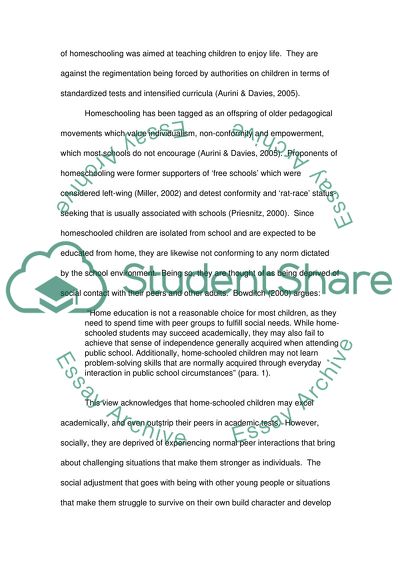Cite this document
(The Other Side of Homeschooling Essay Example | Topics and Well Written Essays - 1250 words, n.d.)
The Other Side of Homeschooling Essay Example | Topics and Well Written Essays - 1250 words. https://studentshare.org/english/1773587-home-schooling-and-its-negative-impact-on-children
The Other Side of Homeschooling Essay Example | Topics and Well Written Essays - 1250 words. https://studentshare.org/english/1773587-home-schooling-and-its-negative-impact-on-children
(The Other Side of Homeschooling Essay Example | Topics and Well Written Essays - 1250 Words)
The Other Side of Homeschooling Essay Example | Topics and Well Written Essays - 1250 Words. https://studentshare.org/english/1773587-home-schooling-and-its-negative-impact-on-children.
The Other Side of Homeschooling Essay Example | Topics and Well Written Essays - 1250 Words. https://studentshare.org/english/1773587-home-schooling-and-its-negative-impact-on-children.
“The Other Side of Homeschooling Essay Example | Topics and Well Written Essays - 1250 Words”. https://studentshare.org/english/1773587-home-schooling-and-its-negative-impact-on-children.


